Nutrient uptake efficiency of Gracilaria chilensis and Ulva lactuca in an IMTA system with the red abalone Haliotis rufescens
DOI: https://doi.org/10.3856/vol42-issue3-fulltext-12
Abstract
The current study examined the nutrient uptake efficiency of Ulva lactuca and Gracilaria chilensis cultivated in tanks associated with the wastewater of a land-based abalone culture. The experiments evaluated different seaweed stocking densities (1200, 1900, 2600, and 3200 g m-2) and water exchange rates (60, 80, 125, and 250 L h-1). The results show that both Ulva lactuca and Gracilaria chilensis were efficient in capturing and removing all of the inorganic nutrients originating from the abalone cultivation for all of the tested conditions. Furthermore, an annual experiment was performed with U. lactuca, cultivated at a stocking density of 1900 g m2 and at a water exchanged rate of 125 L h-1, in order to evaluate seasonal changes in the nutrient uptake efficiency, productivity, and growth rate associated with the wastewater of a land-based abalone culture. The results confirmed high uptake efficiency during the entire year, equivalent to a 100% removal of the NH4, NO3, and PO4 produced by the land-based abalone culture. The growth rate and productivity of U. lactuca presented a marked seasonality, increasing from fall until summer and varying from 0.5 ± 0.2% to 2.6 ± 0.2 % d-1 and 10 ± 6.1% to 73.6 ± 8.4% g m-2 d-1 for sustainable growth rate and productivity, respectively. We conclude that there is sufficient evidence that demonstrates the high possibility of changing the traditional, monoculture system of abalone in Chile to a sustainable integrated multi-trophic aquaculture system, generating positive environmental externalities, including the use of U. lactuca as a biofiltration unit.


